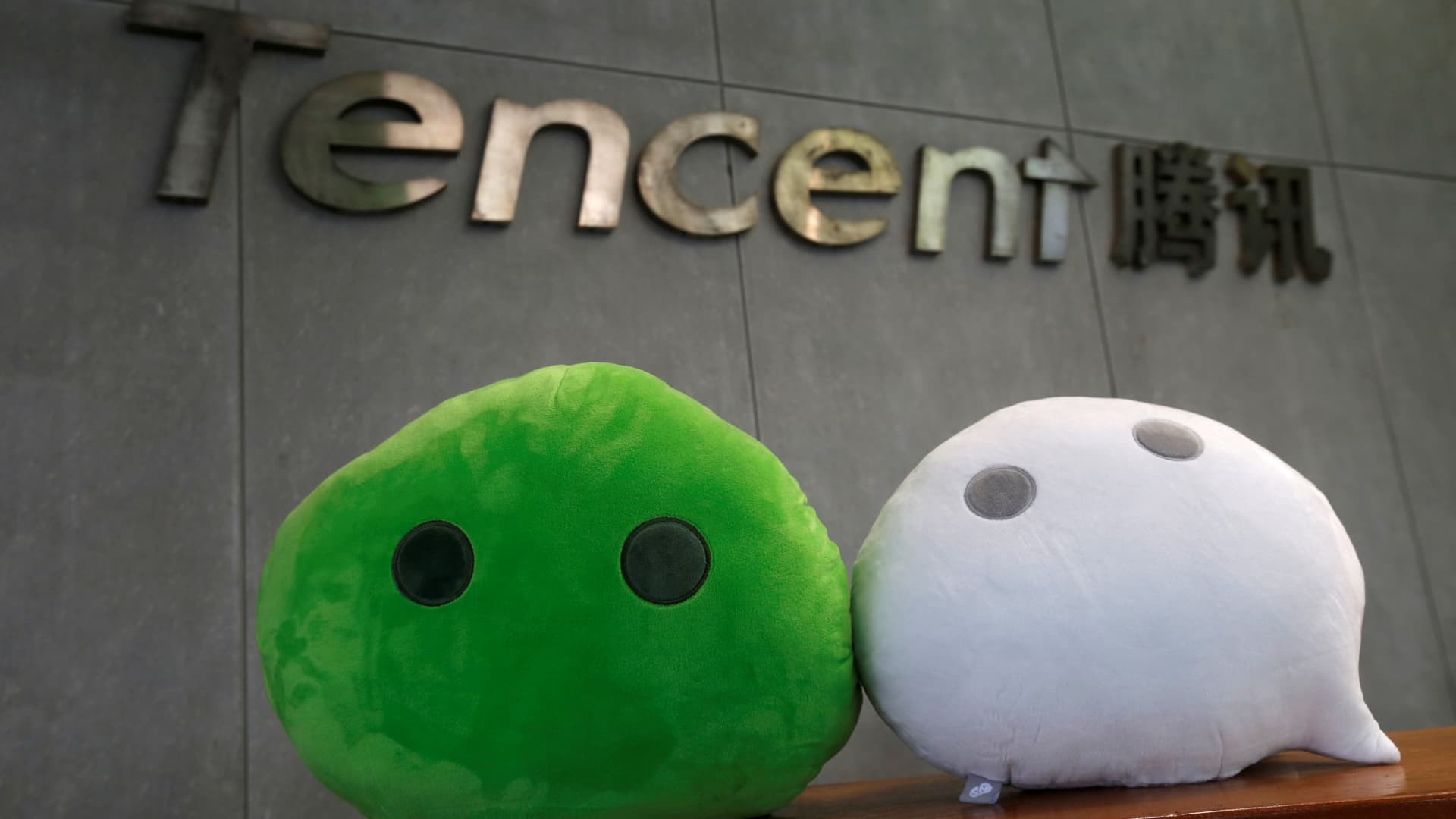China’s Tencent misses expectations despite fastest profit rise since late 2021

Tencent has faced a number of headwinds in 2022 including a Covid-induced slowdown in the Chinese economy and a tougher market for gaming.
Bobby Yip | Reuters
Tencent on Wednesday reported a weaker-than-expected surge in profit for the second quarter, as cost-cutting measures began to pay off and sales rose across the company’s various businesses.
Here’s how Tencent did in the second quarter, versus Refinitiv consensus estimates:
- Revenue: 149.21 billion Chinese yuan ($20.46 billion) vs. 151.73 billion yuan expected, representing a rise of 11% year-on-year.
- Profit attributable to equity holders of the company: 26.17 billion Chinese yuan vs 33.42 billion yuan. That is a 41% year-on-year rise.
Tencent is now starting to see the benefits of the cost-cutting drive it embarked on last year, when it exited non-core businesses and tightened marketing spending. The company, which owns China’s biggest messaging app WeChat, is now observing a pick-up in its businesses, from gaming to cloud computing.
“During the second quarter of 2023, we sustained a solid revenue growth rate, along with a gravitation toward high quality revenue streams with better margins,” Tencent said in a statement.
“This transition, combined with careful cost discipline developed in the previous year, resulted in profit growth exceeding revenue growth.”
Tencent has now reported three straight quarters of revenue growth, as the Chinese technology giant recovers from the headwinds of a tough 2022.
Firstly, its core gaming business slowed dramatically relative to comparisons with 2021, when people relied more on indoors entertainment because of the spread of the pandemic. Tencent is one of the world’s biggest online gaming companies.
Secondly, Chinese authorities froze the approval of new games for several months and only restarted the process in April 2022. It took a few months for the regulators after this to approve games published by Tencent.
But the weaker-than-expected revenue growth continues to reflect the turbulence of the Chinese economy, which has failed to recover as briskly as many had anticipated after the pandemic.









